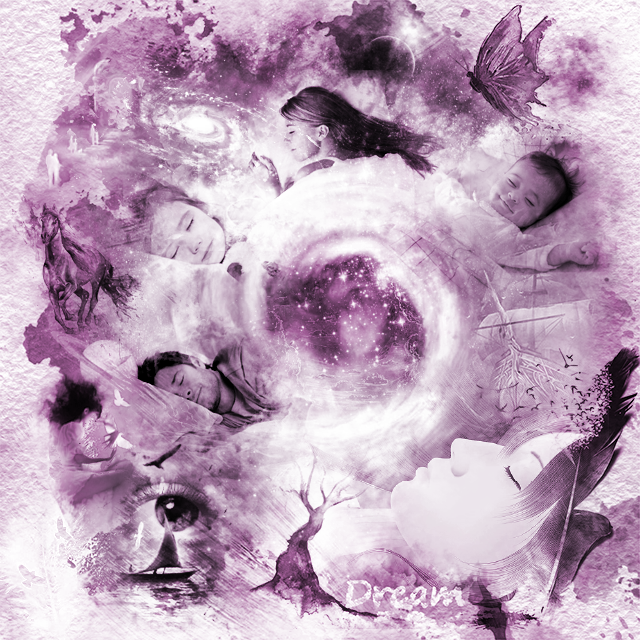
Dreams have always been a source of fascination for people, from ancient civilizations to modern-day psychologists. They offer a unique window into our subconscious minds, revealing our deepest desires, fears, and hopes. However, interpreting dreams can be a challenging task, as the symbols and scenarios presented in our dreams often seem obscure and unconnected to our waking lives. That's where Islamic Sciences comes in - as one of the most comprehensive and insightful resources for dream interpretation, it offers fascinating insights into the meanings behind these images, helping us understand the messages that our subconscious is trying to convey.
Islamic Sciences provides a wealth of information about dream interpretation, drawing upon the Qur'an, the sayings of the Prophet Muhammad (peace be upon him), and the interpretations of Islamic scholars. The website offers a comprehensive guide to understanding various dream symbols, signs, and meanings from an Islamic perspective. Additionally, the website offers practical tips and advice for mastering the art of dream interpretation.
What sets Islamic Sciences apart from other dream interpretation resources is its comprehensive database of dream interpretation and meanings for over 65,000 dreams, drawing from Islamic sources. This comprehensive guide provides readers with a wealth of information and can help them gain a better understanding of their dreams and their vision for the future.
Interpreting the symbols and scenarios in your dreams can be a powerful tool for self-discovery and personal growth. When analyzing your dreams from an Islamic perspective, it's important to consider the emotions and sensations you experienced during the dream, as well as any recurring themes or symbols. By exploring these themes and symbols from an Islamic perspective, you can gain a deeper understanding of your subconscious thoughts and emotions and use this knowledge to make positive changes in your life.
Islamic Sciences is a trusted source for anyone seeking to explore the fascinating world of dream interpretation from an Islamic perspective. Whether you are a seasoned dream interpreter or just starting out, this comprehensive guide has something to offer everyone, and is sure to provide you with a deeper and more meaningful understanding of your dreams and your life.
Dreams are a natural and valuable part of sleep. They provide insight, creativity, and self-awareness. Although it may be challenging, interpreting their meaning can be rewarding. Islamic Sciences offers various theories and approaches to understanding dreams from an Islamic perspective.
Islamic Sciences believes that dreams are a manifestation of unconscious desires, thoughts, and feelings that are often repressed in our waking lives. These dreams can be influenced by our mental and emotional states, as well as our physical health. By exploring the symbolism and interpretation of your dreams from an Islamic perspective, you can gain a deeper understanding of yourself and your unconscious mind, and find new ways to approach challenges and make positive changes in your life.
The meaning of dreams is highly subjective and personal. By exploring the symbolism and interpretation of your dreams from an Islamic perspective, you can gain a deeper understanding of yourself and your unconscious mind, and find new ways to approach challenges and make positive changes in your life.
Dreams provide important insights about our tendencies, habits, beliefs, emotions, motivations, and behaviors. Acknowledging these aspects of ourselves can help us heal and move forward in an empowered and integrated manner.
Paying attention to symbolic elements in dreams can help us gain a better understanding of our unconscious mind and ourselves from an Islamic perspective.
The Islamic Sciences Dream Interpretation Dictionary: Symbols, Signs, and Meanings provides a deep and rich understanding of a variety of images, signs, and symbols from an Islamic perspective.
If you're interested in learning more about dreams and dream interpretation from an Islamic perspective, [islamicdreaminterpretation.org] provides profound insights into thousands of dream messages and teaches how to master dream interpretation. By learning more about your dreams and their meanings from an Islamic perspective, you can gain a deeper understanding of yourself and your unconscious mind, and find new ways to approach challenges and make positive changes in your life.


Dictionary of Dreams so “islamicdreaminterpretation.org” 52 different sources with our, presents more than 65.000 cross-referenced dream symbols and their universal meanings to assist you in analyzing your unconscious mind.
Also, Psychological / emotional perspective, Material aspects and Gives gender - specific, interpreted of dream.
Some resources on our site, symbols, Signs, and Meanings explores the messages delivered by the unconscious mind during sleep. Some other sources it examines how dreams connect to daily life. Some of them, it shows how dreams can lead to deeper understanding and self-awareness.
Freud's point of view of dream
In his book "The Interpretation of Dreams" Sigmund Freud suggested that the content of dreams is related to wish-fulfillment. Freud believed that the manifest content of a dream, or the actual imagery and events of the dream, served to disguise the latent content or the unconscious wishes of the dreamer.
Freud also described four elements of this process that he referred to as "dream work":
Jung's point of view of dream
While Carl Jung shared some commonalities with Freud, he felt that dreams were more than an expression of repressed wishes. Jung suggested that dreams revealed both the personal and collective unconscious and believed that dreams serve to compensate for parts of the psyche that are underdeveloped in waking life. In contradiction to Jung's assertions, however, later research by Hall revealed that the traits people exhibit while they awake are the same as those expressed in dreams.
Jung also suggested that archetypes such as the anima, the shadow, and the animus are often represented symbolic objects or figures in dreams. These symbols, he believed, represented attitudes that are repressed by the conscious mind. Unlike Freud, who often suggested that specific symbols represent specific unconscious thoughts, Jung believed that dreams can be highly personal and that interpreting these dreams involved knowing a great deal about the individual dreamer.
Hall's point of view of dream
Calvin S. Hall proposed that dreams are part of a cognitive process in which dreams serve as "conceptions" of elements of our personal lives. Hall looked for themes and patterns by analyzing thousands of dream diaries from participants, eventually creating a quantitative coding system that divided what's in our dreams into a number of categories.
According to Hall’s theory, interpreting dreams requires knowing:
The ultimate goal of this dream interpretation is not to understand the dream, however, but to understand the dreamer.
Domhoff's point of view of dream
William Domhoff is a prominent dream researcher who studied with Calvin Hall at the University of Miami. In large-scale studies on the content of dreams, Domhoff has found that dreams reflect the thoughts and concerns of a dreamer’s waking life. Domhoff suggests a neurocognitive model of dreams in which the process of dreaming results from neurological processes and a system of schemas. Dream content, he suggests results from these cognitive processes.